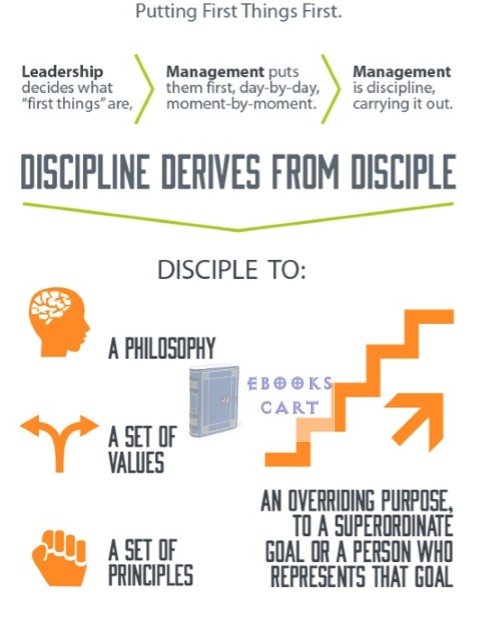

This philosophy is known as the Character Ethic, under which success is attributed more to underlying characteristics such as integrity, courage, justice, patience, etc. It emphasized the deeper principles and foundations of success. However, during the 150 years or so that preceded that period, the literature on success was more character oriented. This philosophy can be referred to as the Personality Ethic. The success literature of the last half of the 20th century largely attributed success to personality traits, skills, techniques, maintaining a positive attitude, etc. In some cases such tactical advice may have been effective, but only for immediate issues and not for the long-term, underlying ones. He noticed that since the 1920's, success writings have focused on solutions to specific problems. Covey reviewed 200 years of literature on success. While working on his doctorate in the 1970's, Stephen R. Inside-Out: The Change Starts from Within The following is a summary of the first part of his book, concluding with a list of the seven habits. Covey presented a framework for personal effectiveness. Covey's The 7 Habits of Highly Effective People One, published in 1996, was titled “The 7 Habits of Highly Defective People: And Other Bestsellers That Won’t Go Away.Summary of Stephen R. Campaigning in the Iowa Republican primary last year, Mitt Romney referred to the book in offering his “seven habits for highly successful economies.” Parodies have cropped up. “Seven Habits” became part of the vernacular. Covey’s advice and asked him to help write a chapter on personal strength in American culture for a student reading in a college course Mr. As speaker of the House, Newt Gingrich drew on Mr. Covey one of the 25 most influential Americans, and Forbes called “Seven Habits” one of the top 10 business management books ever.

He denied any Mormon bias in his books, saying he drew inspiration from the Scriptures and from history’s great thinkers. Covey was a Mormon, and some saw large elements of Mormon theology in his work, though his language was ecumenical. “What is common sense isn’t common practice,” he declared. His goal was to change society, he said, calling his catechism first and foremost an action plan. “The Leader in Me,” published in 2008, embodies his ideas for educational reform. He expanded the lesson in 2004 in “The 8th Habit: From Effectiveness to Greatness,” in which he urges people to find their own distinctive voices and to encourage others to find theirs.Īmong his other books, “Seven Habits for Highly Effective Families,” published in 1997, advocates that families come up with mission statements. “We believe that organizational behavior is individual behavior collectivized,” Mr. Sharpen the saw that is, undergo frequent self-renewal. Seek first to understand, then to be understoodħ. All that people had to do was form habits out of their best instincts, he said, calling his seven nuggets of knowledge natural laws, like gravity. He said he was simply telling people what he thought they already knew: the efficacy of good behavior. More than two-thirds of Fortune 500 companies flocked to use a consulting company he had founded. Covey over Thanksgiving in 1994, President Bill Clinton said American productivity would greatly increase if people followed Mr. Covey’s book sold more than 25 million copies worldwide, and also became the first audiobook to sell more than a million copies. The cause was complications of a bicycle accident three months ago, his family said in a statement. Covey, who won a global following and a five-year run on best-seller lists by fusing the genres of self-help and business literature in his 1989 book “The Seven Habits of Highly Effective People: Restoring the Character Ethic,” died on Monday at a hospital in Idaho Falls, Idaho.


 0 kommentar(er)
0 kommentar(er)
